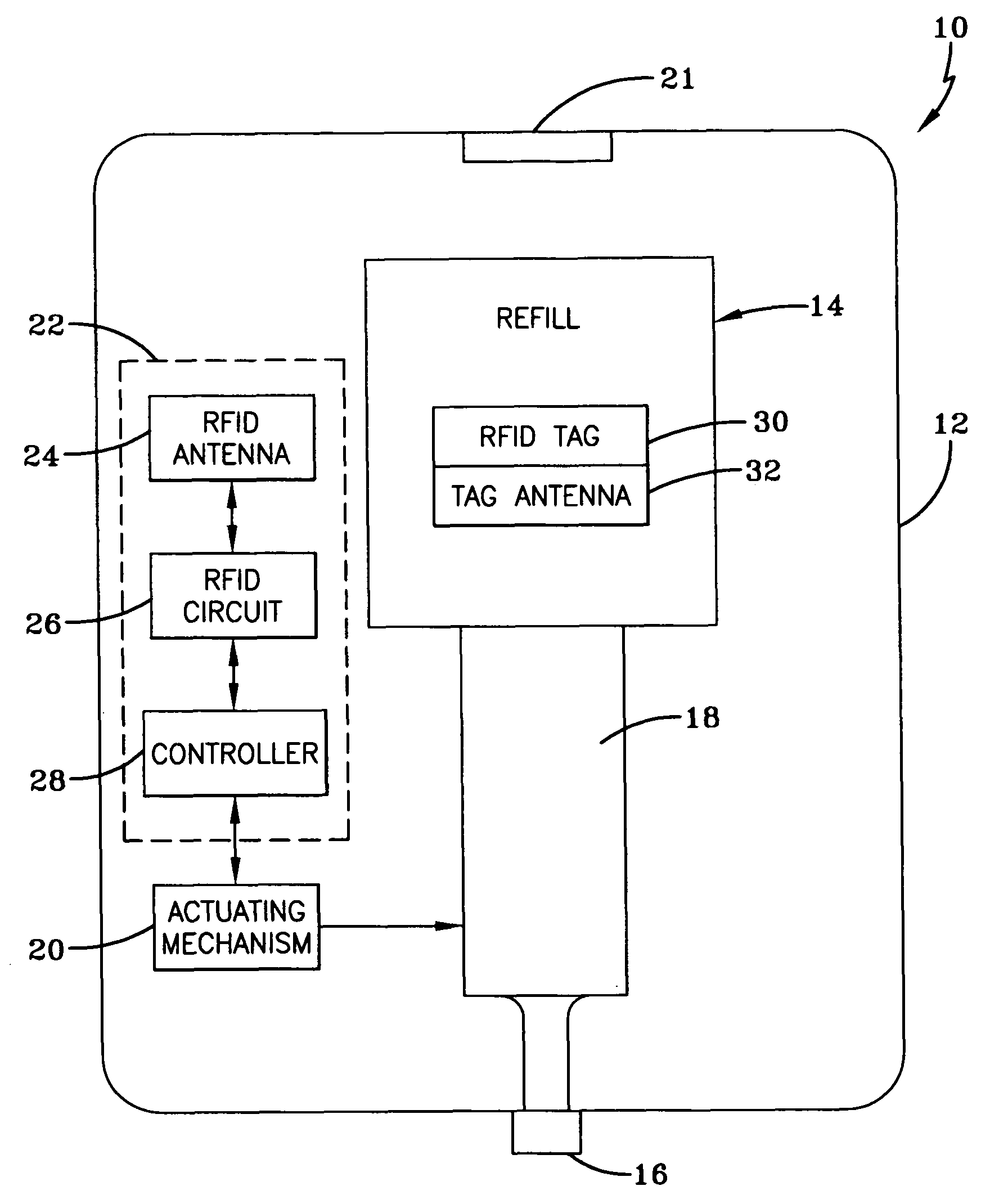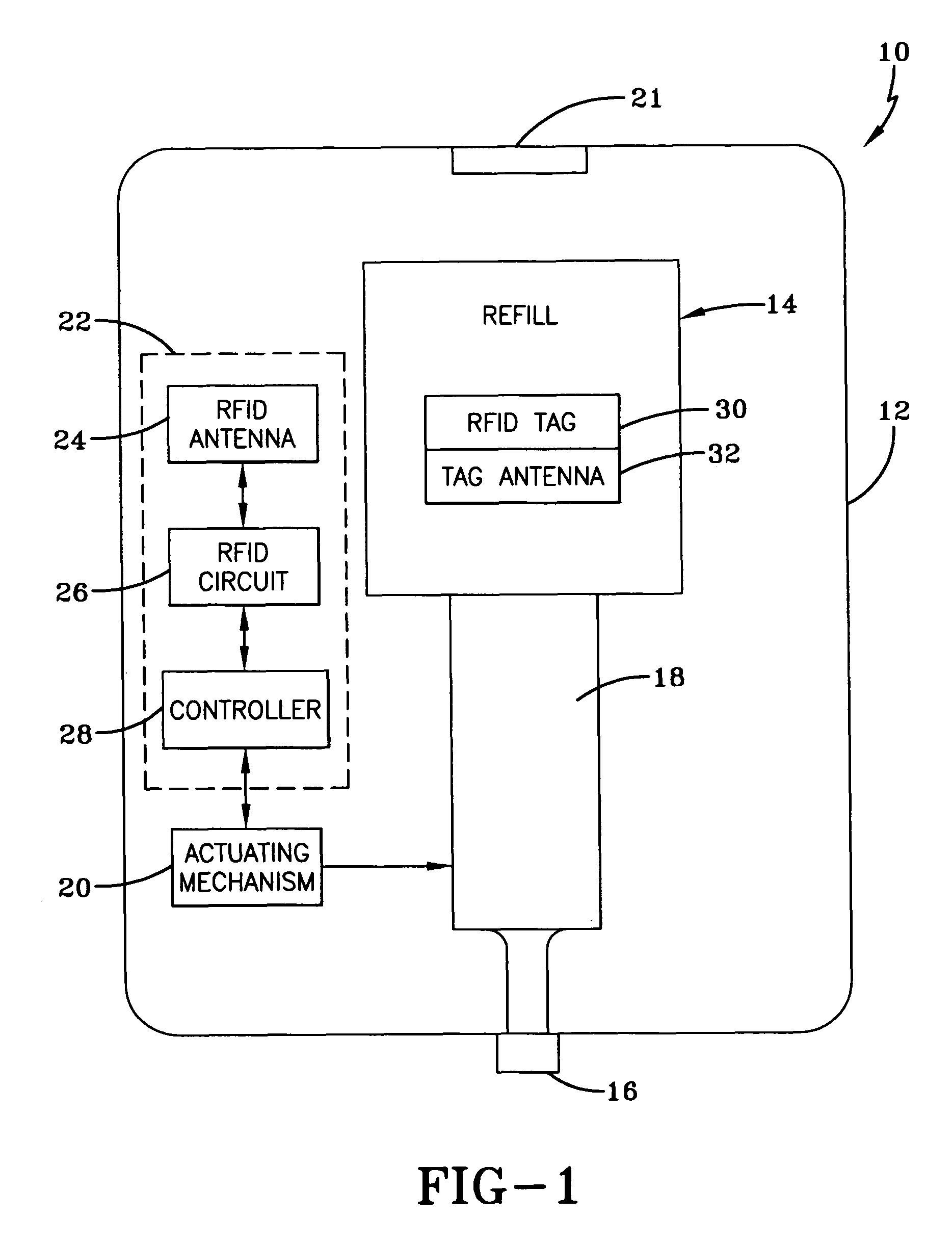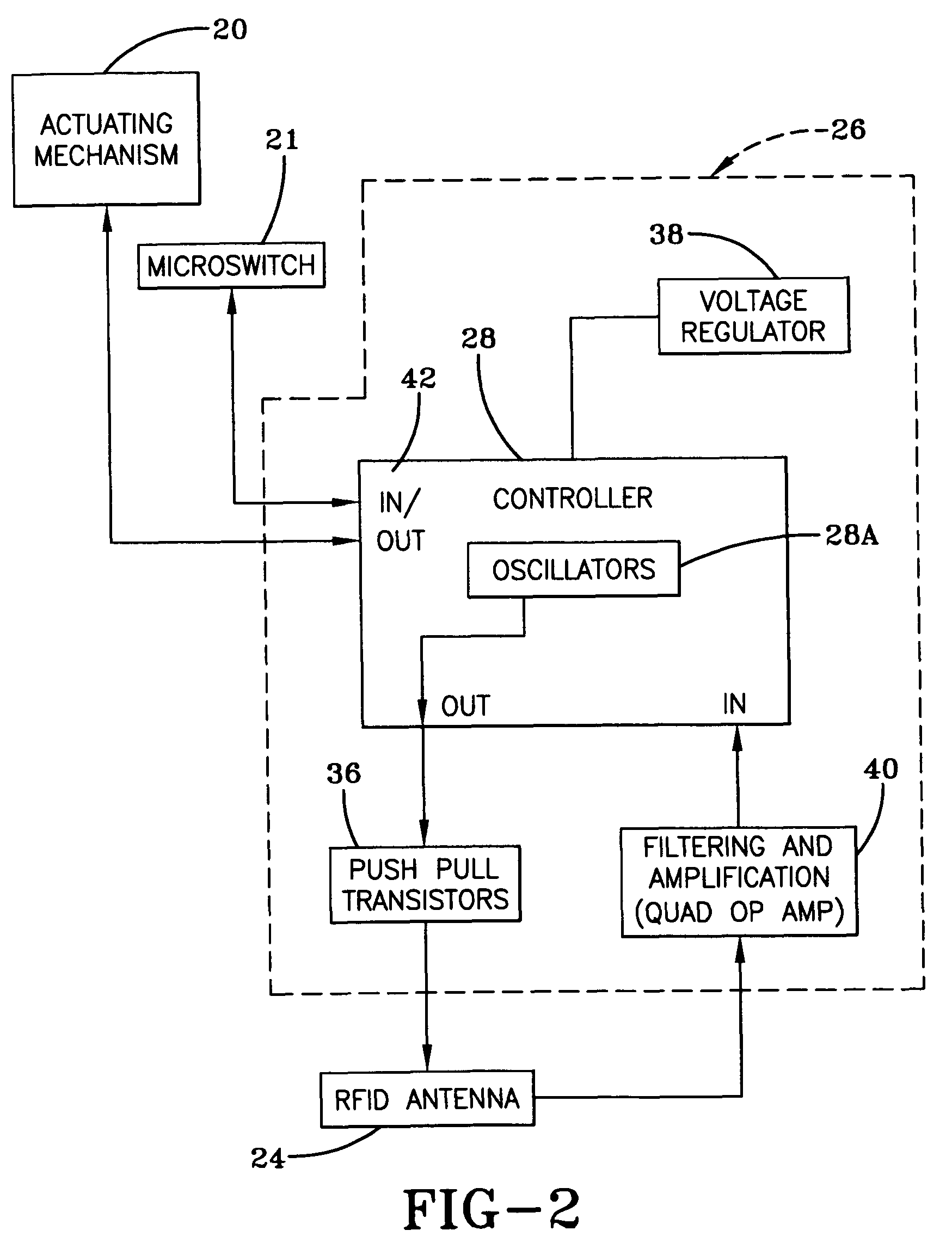Low cost radio frequency identification (RFID) dispensing systems
a radio frequency identification and dispenser technology, applied in the field of low cost radio frequency identification (rfid) fluid dispensers, can solve the problems of preventing the manufacturer from obtaining an adequate return on the dispensers, affecting the service life of hospital personnel, and affecting the service life of the dispenser, etc., to achieve the effect of low cos
- Summary
- Abstract
- Description
- Claims
- Application Information
AI Technical Summary
Benefits of technology
Problems solved by technology
Method used
Image
Examples
Embodiment Construction
[0040]It will be appreciated from a reading of the Background Art that a primary need for dispensing systems is the ability to prevent “stuffing” of competitor's refill containers in a manufacturer's dispenser or in dispensers serviced by a distributor authorized by the manufacturer. The exemplary systems disclosed herein fill this need by facilitating sharing of data between a communication device associated with the refill container and a communication device associated with the dispenser housing. Sharing of data includes, but is not limited to: the type of material within a refill container; a refill container's identification code; a concentration ratio within the refill container; a distributor's identification code; quality control information, such as manufacture dates and lot size; pump and / or nozzle size; the type of pump actuating mechanism associated with a dispenser; the type of dispenser location—restaurant, hospital school, factory, etc—; the dispenser's history of use...
PUM
 Login to View More
Login to View More Abstract
Description
Claims
Application Information
 Login to View More
Login to View More - R&D
- Intellectual Property
- Life Sciences
- Materials
- Tech Scout
- Unparalleled Data Quality
- Higher Quality Content
- 60% Fewer Hallucinations
Browse by: Latest US Patents, China's latest patents, Technical Efficacy Thesaurus, Application Domain, Technology Topic, Popular Technical Reports.
© 2025 PatSnap. All rights reserved.Legal|Privacy policy|Modern Slavery Act Transparency Statement|Sitemap|About US| Contact US: help@patsnap.com



